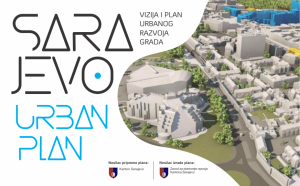SARAJEVO, December 2 (FENA) - Two years have passed since the publication of the results of the international PISA 2018 survey in December 2019, and one year since the publication of the TIMSS 2019 results in December 2020.
The Head of the OSCE Mission to Bosnia and Herzegovina, Ambassador Kathleen Kavalec, pointed out that the research revealed serious shortcomings in the provision of educational services in Bosnia and Herzegovina.
It has been two years since the results of PISA 2018 were published in December 2019 and one year since the results of TIMSS 2019 in December 2020. What did those results show and why do they matter?
Ambassador Kavalec: The results revealed serious shortcomings of education provision in Bosnia and Herzegovina. PISA 2018 exposed that half of the 15-year-olds are functionally illiterate and approximately three years behind their peers in the OECD area, while TIMSS 2019 showed that around a quarter of fourth-graders does not reach even the lowest level of achievements in mathematics and natural sciences. While these findings are undoubtedly disappointing for everybody, they also represent an important opportunity to improve the quality of education in Bosnia and Herzegovina.
These results should serve education authorities as a diagnostic tool and a guide for strategic planning, decision-making, and tailored investment towards better education. The results indicate the urgent need for comprehensive curriculum reform, rethought teaching materials, strengthened school management and teacher competencies – these are the essential building blocks of an education system(s) that can successfully guide young generations towards a better future.
The UNICEF Representative in BiH Rownak Khan said there are many benefits to large-scale international assessments in education (ILSA).
What is the added value of international assessments in the area of education - such as PISA, TIMSS, and PIRLS - in comparison to other assessments conducted within individual education systems?
Representative Khan: There are many benefits of international large-scale assessments in education (ILSAs), I will mention at least three. First, these assessments generate evidence of learning by assessing the functional knowledge of students, second, they provide international comparisons and third they are providing evidence of how effective education policy changes or reforms are in comparison to the previous test cycles.
As one education expert puts it, ILSAs are the climate of education systems. They tell us how trends have developed over time and which relationships between variables are best for predicting the future. More and more countries are acknowledging the importance of ILSAs- take PISA for example, from 32 countries and economies participating in 2000 to 79 in 2018. In addition, ILSAs are often in cost-effective in comparison to internal assessments. Internal assessments in education are also important and BiH should build its capacities and resources to be able to develop them while continuing to participate in international ones.
The COVID-19 pandemic caused major disruptions in education worldwide, as well as in BiH. To what scale are international large-scale assessments important in assessing post-COVID difficulties?
Representative Khan: In the last two years we had unprecedented disruptions in schooling around the world. Experts have warned us that the disruptions might lead to severe learning loss, disproportionally affecting the most vulnerable children and youth.
In parallel, the effects of COVID on economies might affect already scarce resources for investments in education. In this context, policies based on evidence are more important than ever- In other words, it is utmost critical to have strong data on learning. ILSA experts are already tailoring their tools to properly address the impact of COVID, which will surely be researched in the coming decades. Besides addressing difficulties caused by the pandemic, future ILSAs will also enable evidence to see what worked in post-COVID recovery. We have so much learning ahead of us and countries which do not obtain and/or use the upcoming evidence might significantly fall behind.
Bosnia and Herzegovina failed to sign contracts for participation in the PISA 2022, while its participation in other assessments is questionable as well. Why is it important to continuously participate in international assessments in the area of education?
Ambassador Kavalec: To measure the impact of taken interventions or to plan changes in approach towards a better-quality education, you need a comprehensive understanding of its current status and how it changes with time. Comparative and unbiased evidence – which these international assessments provide - is essential for this. Therefore, continued participation is crucial.
The decision on BiH participation in international large-scale assessments has been pending the approval of the BiH Presidency for some time now. We call on the BiH Presidency to take, without any further delays, steps needed for continuous participation in these crucial assessments. BiH cannot afford to lose time and this valuable opportunity to be part of international assessments and to ensure quality education for all children.
What are the consequences of discontinuation of participation for this country and its young generations?
Ambassador Kavalec: The consequences of the discontinuation of BIH’s participation in these programs are severe. First of all, it would be a huge missed opportunity for conducting evidence-based work towards improving the quality of education for the younger generations of this country. Inclusive quality education is not only something that all children have a right to, but also represents the foundation of economic prosperity and sustainable peace. Depriving new generations of this right will likely see young people continue to leave this country in droves and with this the loss of immense potential to create a better future for BiH. We cannot stress enough just how important it is that the responsible authorities ensure that BiH resumes participation in these indispensable assessments.
Evidently, BiH students are lagging significantly behind their peers in Western Europe and the OECD countries, and we also see large equity discrepancies between students. While the importance to continually participate in international assessments is undeniable, what can education authorities and schools in BiH do with already available PISA 2018 and TIMSS 2019 results? What can we also do with the lessons learned from the COVID-19 pandemic?
Representative Khan: I remember the striking headlines on 3 December 2019, when the first PISA results for BiH were published. The news went viral for a few days, but we did not see much immediate reactions or actions from most of the education authorities in BiH.
Four months later we were in the midst of the pandemic and conversations around education reforms were put in the back burner. Authorities need to revitalize these conversations and to use the data to strategically plan education sector reforms. TIMSS and PISA reports recommend actions such as investments in preschool education, implementation of common core curricula and strengthening teacher and education management competencies, and targeted interventions to improve achievements of vulnerable children, such as children living in poverty, children from rural areas and young people enrolled in vocational education and training (VET).
The COVID pandemic further demonstrated the importance of focusing interventions on vulnerable children and youth as the Rapid Assessments and Socio-economic impact surveys show that school closures have disproportionally affected these marginalized groups in the country. The last two years also demonstrated the importance of digital education reforms and ensuring equitable access to digital technologies for children and teachers.
There is compelling evidence that teachers need support in keeping up with digital technologies. Finally, it also directs conversations about the importance of targeted actions to protect the mental health of children, teachers, and parents/caregivers.
All these findings cannot just be left on paper. Education reforms take time which children in BiH do not have - we need to act now, stressed Khan.
(FENA) S. R.










